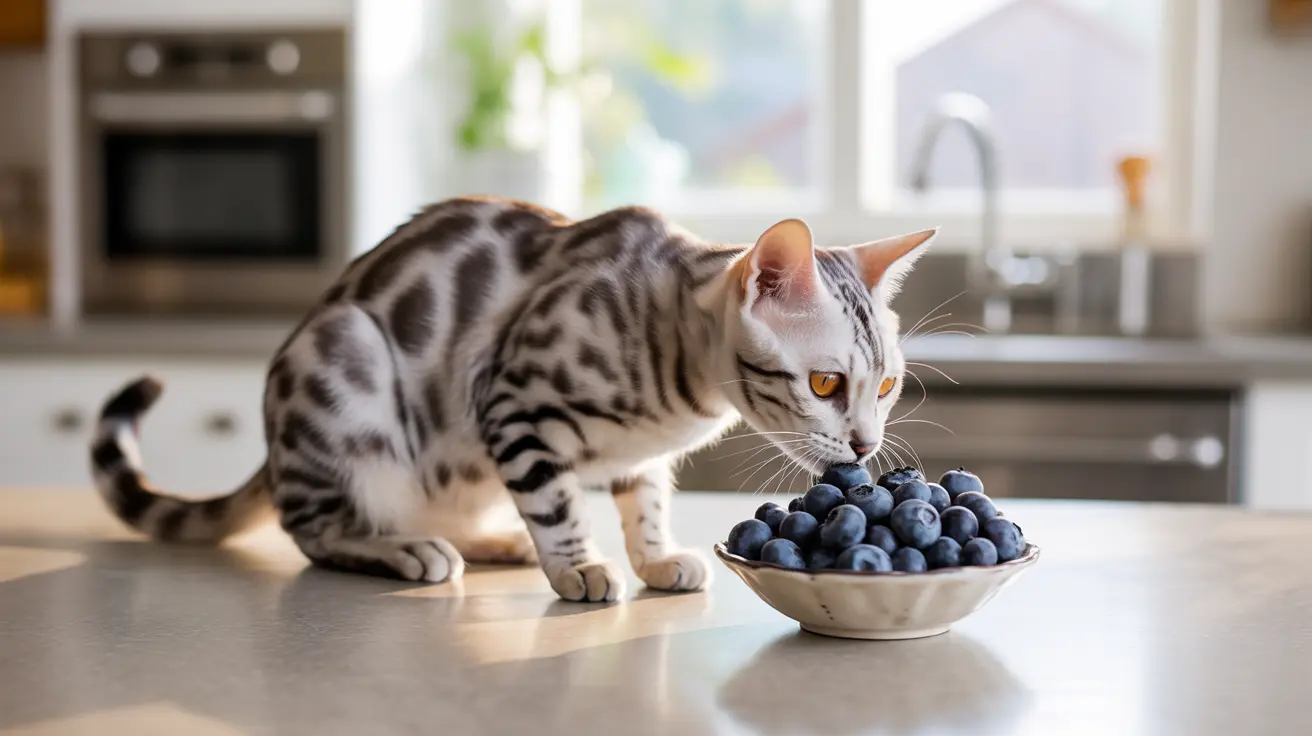Introduction
If you've ever wondered "can cats eat blueberries," you're not alone. As pet parents increasingly focus on natural treats for their feline friends, blueberries have garnered attention for their potential benefits. While cats are obligate carnivores, meaning they primarily need meat-based nutrition, certain fruits like blueberries can be safely offered as occasional treats.
In this comprehensive guide, we'll explore everything you need to know about feeding blueberries to your cat, including safety considerations, potential benefits, and proper serving guidelines. Let's dive into the facts about this popular superfood and its role in feline nutrition.
Are Blueberries Safe for Your Cat?
The short answer is yes - blueberries are generally safe for cats to eat. Unlike grapes or raisins, which are toxic to cats, blueberries don't pose any inherent dangers to your feline friend. However, this doesn't mean you should start adding large quantities of blueberries to your cat's diet.
It's crucial to understand that while blueberries are safe, they should be treated as an occasional treat rather than a dietary staple. Cats' digestive systems are specifically designed to process meat, not fruit, so moderation is key.
Nutritional Benefits of Blueberries
While cats don't require blueberries in their diet, these little berries do offer some potential health benefits when served occasionally:
- Antioxidants that help combat free radicals
- Natural fiber that can aid digestion
- Vitamins C and K
- High water content for added hydration
- Anti-inflammatory properties
Proper Serving Guidelines
When introducing blueberries to your cat, follow these essential guidelines:
- Start with one small piece to test for tolerance
- Wash thoroughly to remove pesticides
- Cut or mash the berry to prevent choking
- Limit treats to 1-2 small berries per serving
- Offer no more than twice per week
Potential Risks and Precautions
While blueberries are safe, there are some important considerations to keep in mind:
- Sugar content may not be suitable for diabetic cats
- Possible digestive upset in sensitive cats
- Risk of choking if not properly prepared
- Potential allergic reactions in some cats
When to Avoid Blueberries
Some cats should not be given blueberries, including:
- Cats with diabetes
- Those with kidney disease
- Cats with known fruit sensitivities
- Cats on specialized diets
- Cats with ongoing digestive issues
Frequently Asked Questions
Can cats eat blueberries, and are they safe for my cat?
Yes, blueberries are safe for cats to eat in moderation. They are non-toxic and can be offered as an occasional treat, but should always be properly prepared and introduced gradually.
What are the health benefits of feeding blueberries to cats?
Blueberries contain antioxidants, vitamins, and fiber that can support overall health. However, these benefits are minimal compared to a proper cat diet, and blueberries should only be considered a supplemental treat.
How many blueberries can I safely give to my cat per week?
Limit blueberry treats to 1-2 small berries per serving, no more than twice per week. Always monitor your cat's reaction and adjust accordingly.
How should I introduce blueberries to my cat's diet to avoid digestive issues?
Start with a single, small piece of blueberry and observe your cat for 24 hours for any adverse reactions. If well-tolerated, you can gradually offer slightly larger portions.
Are blueberries a suitable replacement for part of my cat's regular diet?
No, blueberries should never replace any portion of your cat's regular diet. Cats are obligate carnivores and require a meat-based diet for proper nutrition.
Conclusion
While cats can safely eat blueberries, they should only be offered as an occasional treat, not as a dietary staple. Remember that your cat's primary nutrition should come from high-quality cat food formulated for their specific needs. If you choose to offer blueberries, do so in moderation and always monitor your cat's response to this fruity treat.






